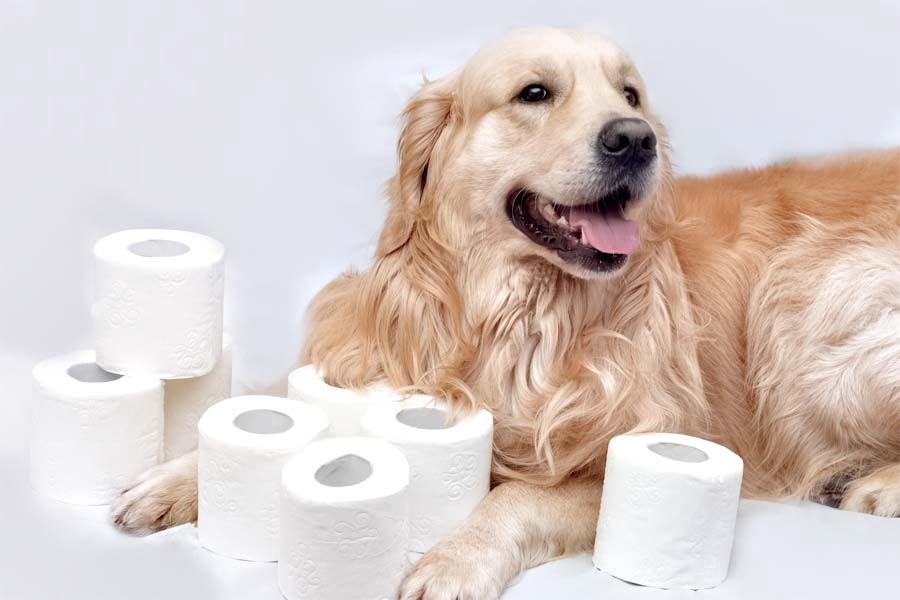A Turramurra Vet Article
Toilet Training your Puppy in Five Simple Steps (Even When it is Raining!)

Toilet Training your Puppy in Five Simple Steps (Even When it is Raining!)
by Katie Bedrossian, Pet Behaviour Consultant
Alongside managing puppy mouthing, chewing and socialisation, toilet training is a key part of raising any puppy who will spend time indoors. However, without a few guidelines, it can cause frustration, mess and sometimes relegation to being kept outdoors, reducing social interaction.
Read below for the top 5 ways to ensure puppy toilet training goes as smoothly as possible:
- Be aware of normal puppy development. Your puppy’s bladder and bowel control is not the same as a dog over 6 months of age. Puppies less than 16 weeks old have limited ability to hold on, limited awareness of when they are full and at this age, they get distracted easily. However, most have a natural desire to keep their bed clean. Puppies aged between 16 weeks and 6 months have better control, but can regress and often need guidance during changes (such as during rainfall and visitors). Despite this lack of control, training is important to ensure that good habits stick.
- Prevent accidents happening in the first place. As puppies naturally like to keep their bed clean (and often a small area surrounding this) and don’t like toileting on lead, we can use this to ensure toileting accidents are less likely to occur inside. By tethering your puppy (with a chew-proof tether) to a table or chair leg with their bed, 3-4 toys and a chew item, your puppy can’t wander off to have an accident and is also kept close to you so that you can monitor your puppy’s behaviour closely. You can use playpens and crates in the same way, however some puppies feel more comfortable being tethered than in one of these. An added benefit is that your puppy will think that outside is fantastic and strongly link it to toileting as that is where they get their freedom and play.
- Work out your puppy’s toileting schedule and ensure you are outside just beforehand. On average, puppies will go every 30-60 minutes when awake (more often in evenings or when more exciting things are happening), after eating, drinking, naps and vigorous play (such as after fetch or tug). Overnight, puppies aged 8-12 weeks typically need to toilet every 4 hours, whereas from 12-16 weeks, every 6 hours. Many puppies over 16 weeks of age can sleep for 8-9 hours overnight without needing to go to the toilet. Note down when your puppy goes (accident or not) so you can adjust the schedule as needed and set your puppy up for success!
- Play tug of war or fetch games outside both before and after toileting. This is the key for rainy weather toilet training. If you wait undercover while your puppy is expected to go outside in the rain to go to the toilet, this will teach your puppy that rainy and cold weather means that it is not suitable to go outside and will therefore lead to more accidents inside. Instead, put on your raincoat and gumboots, take a tug toy out with you and act like the rain is the best thing ever! Your puppy will soon catch on.
- When accidents occur, calmly disengage and clean up. Punishing a puppy for toileting accidents or even just clapping hands, verbally reprimanding or whisking them outside mid-pee can create fear in puppies to toilet in front of you. This creates big problems when you are with your puppy outside and want them to toilet, as they may hold on to avoid the reaction they got inside. It can also be a trigger for puppies to eat their own poo and to hide where they go. For some puppies, they don’t find the punishment scary, but instead a reward and it can trigger an attention seeking indoor toileting behaviour.
The majority of puppies get there in the end, but implementing the above tips can mean the difference between having a fully toilet trained puppy by 6 months of age or not.
In rare instances, there may be a medical problem behind toilet training issues such as a urinary tract infection or ectopic ureters (a congenital problem), so if your puppy drips urine frequently or seems to have painful urination or blood present, please ensure you book a veterinary consultation.
If you are continuing to experience toilet training difficulties, please call today to make an appointment with myself, Turramurra Veterinary Hospital’s Pet Behaviour Consultant.

